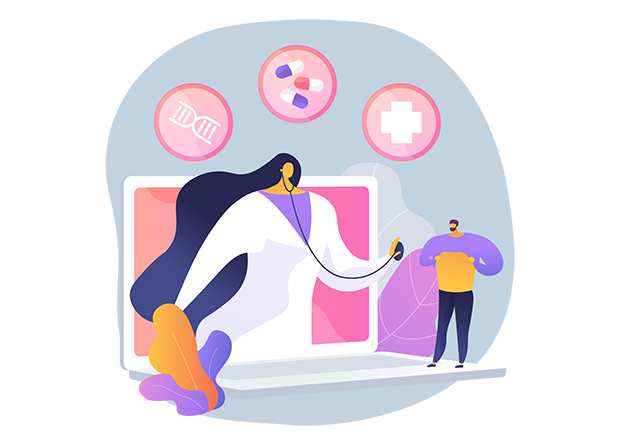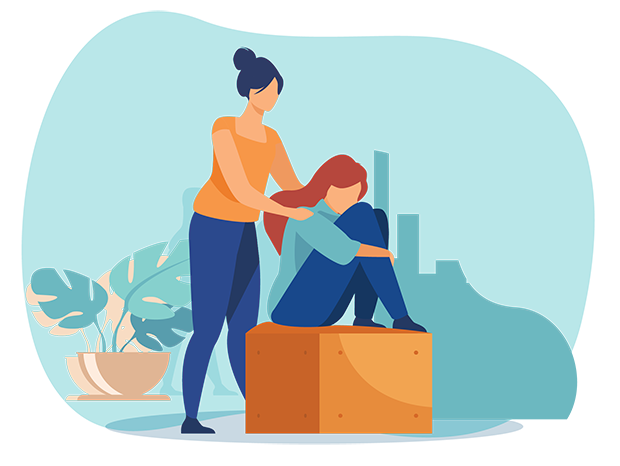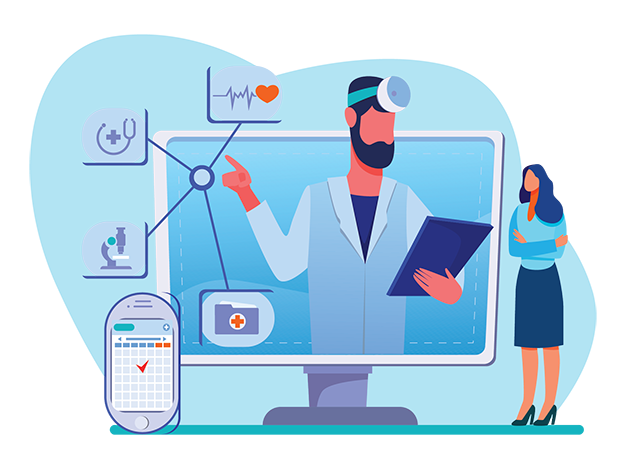Dual Diagnosis
Treatment in Georgia
When you suffer from a substance use disorder and mental health disorder, both of these conditions must be treated simultaneously. At Atlanta Integrative Psychiatry, we offer our dual diagnosis treatment in Georgia as an outpatient service, so you can continue to work, attend school, and take care of your other obligations.


What Is a Dual Diagnosis Disorder?
A dual diagnosis or co-occurring disorder is when a person is diagnosed with both a mental health disorder and a substance use disorder. Dual diagnosis disorders require specialized treatment that simultaneously addresses mental health and substance use disorders. Treatment programs are customized to help the person achieve better mental health while maintaining their recovery.
How Our Dual Diagnosis Treatment in Georgia Works
Our dual diagnosis treatment center in Georgia offers an extensive outpatient dual diagnosis treatment program that employs a comprehensive approach to treatment which includes individual counseling, group therapy, and family therapy. In addition, each patient will receive an individualized treatment plan tailored to meet their specific needs.
Treatment plans may include medication-assisted treatment, psychotherapy, cognitive behavioral therapy, group therapy, and 12-step recovery programs. Treatment will also focus on helping the individual learn healthy coping skills to manage their mental health disorder and substance use disorder. Our team will work closely with the patient throughout treatment to ensure the best possible outcome.
Risk Factors for Dual Diagnosis Disorders
Several risk factors may increase a person’s likelihood of developing a dual diagnosis disorder. These include:
- A family history of mental health disorders or substance use disorders.
- Exposure to trauma or abuse.
- A history of difficult life circumstances.
- Genetics or biological factors.
- Poor coping skills or lack of support system.
- Poor mental health.
- Excessive alcohol and substance use.
It is important to note that anyone can develop a dual diagnosis disorder, regardless of their risk factors. Therefore, it is also important to seek professional help if you or someone you know is exhibiting signs and symptoms of a dual diagnosis disorder.

- Most Common Dual Diagnosis Disorders
- Benefits of Our Dual Diagnosis Programs in Georgia
- What Comes First? Mental Health Disorders or Addiction?
- Signs and Symptoms of A Dual Diagnosis Disorder
The most common dual diagnosis disorders include the following:
- Depression and Alcohol Use Disorder (AUD)
- Anxiety and AUD
- Bipolar Disorder and AUD
- Attention-Deficit/Hyperactivity Disorder (ADHD) and AUD
- Schizophrenia and AUD
- Post-traumatic Stress Disorder (PTSD) and AUD
- Eating Disorder and AUD
- Obsessive-Compulsive Disorder (OCD) and AUD
- Oppositional Defiant Disorder (ODD) and AUD
- Depression and Substance Use Disorder (SUD)
- Anxiety and SUD
- Bipolar Disorder and SUD
- ADHD and SUD
- Schizophrenia and SUD
- PTSD and SUD
- Eating Disorder and SUD
- OCD and SUD
- ODD and SUD
However, dual diagnosis disorders can also include polysubstance use, which is when someone uses multiple substances, such as mixing alcohol with opioids. Their objective is to intensify the effects they experience while using multiple substances in an effort to self-medicate their mental health disorder symptoms.
Some of the benefits of our dual diagnosis programs available at our dual diagnosis treatment center in Georgia help individuals identify and understand the underlying causes of their mental health and substance use disorders. This insight can help them better manage their disorders and lead to an improved quality of life.
Our programs also help individuals develop healthier coping skills, manage stress, and establish healthier relationships. Additionally, our team provides support and guidance throughout the treatment process to ensure the best possible outcome.
It is difficult to determine what comes first. It is possible for a person to develop an addiction before they have a mental health disorder or vice versa. For instance, the longer a person uses substances, the more likely they will start to experience anxiety or depressive symptoms.
On the other hand, someone with a mental health disorder could turn to alcohol or drugs as a way to attempt to self-manage their condition. However, as the body develops a tolerance to the substance, its effects are diminished, so their symptoms worsen.
It is also possible for a person to develop both an addiction and a mental health disorder simultaneously. This can usually occur when a person has a risk of developing a mental health disorder, and it is triggered due to their alcohol or substance use.
Therefore, it is vital to seek professional help if you or someone you know is exhibiting signs and symptoms of a dual diagnosis disorder.
Signs and symptoms of a dual diagnosis disorder can include:
- Changes in behavior.
- Problems with mood.
- Difficulties with concentration and focus.
- Social withdrawal.
- Unexplained physical symptoms.
- Changes in sleep or appetite.
- Increased substance use.
- Loss of interest in activities.
- Self-harm and suicidal thoughts or behaviors.
- Relationship, financial, and legal problems.
- Engaging in risk-taking behaviors.
Services Offered Through Atlanta Integrative Psychiatry
At Atlanta Integrative Psychiatry, we offer a range of services to treat dual diagnosis disorders that are tailored to fit the patient’s specific needs, including the following:
Our goal is to provide you with a safe, caring, and supportive environment where you can take the first steps to recovery and receive help for your mental health disorder. Please contact us today for further information or to schedule an initial consultation.
You are not alone. You deserve to get help.
Atlanta Integrative Psychiatry is an Industry leader in mental health treatment . Our team of top medical experts specialize in dual diagnosis treat and are committed to ensuring that each patient is treated as an individual.
Call us today, we're avialable 24/7.




